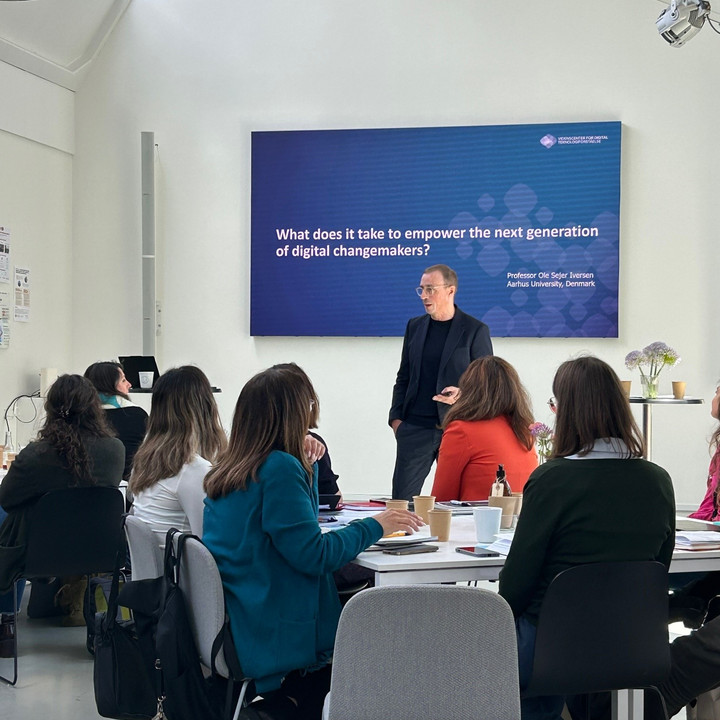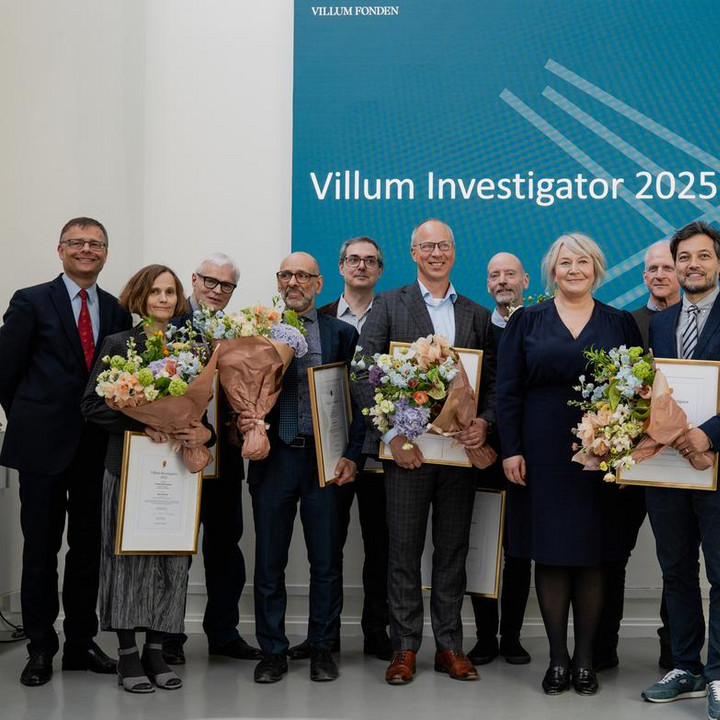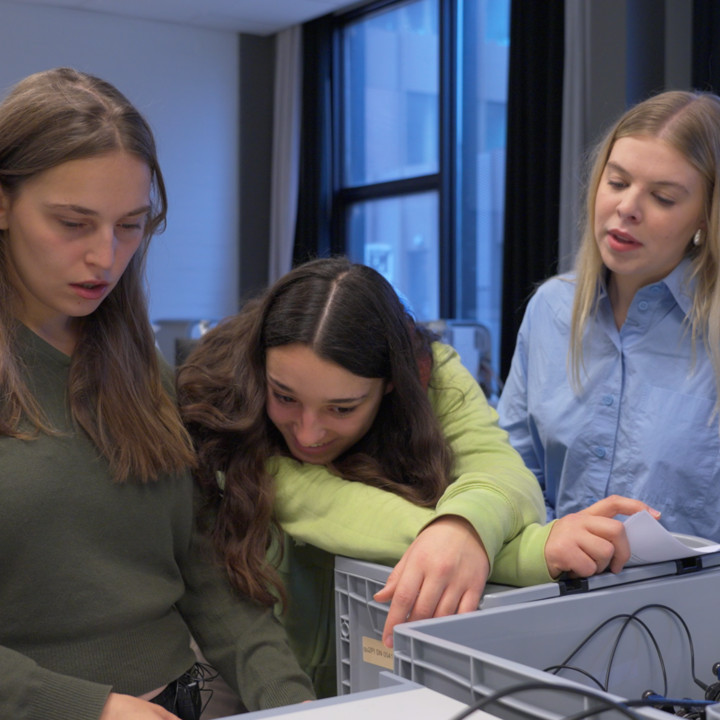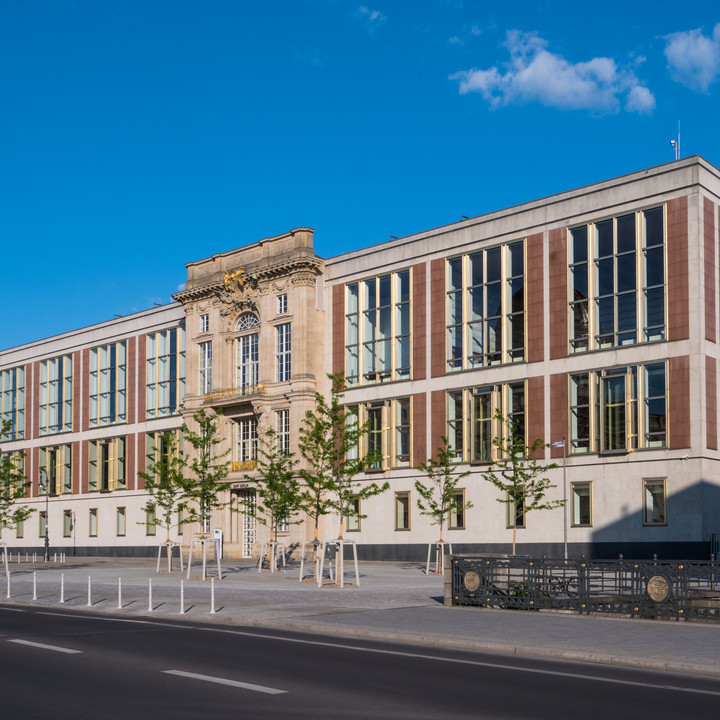Grants for eight excellent scientists under Villum Fonden’s Villum International Postdoc Programme

The Danish Ministry of Higher Education and Science’s reports show that there are relatively fewer women at Danish universities the higher up you scale the academic career ladder. Although the proportion of women in the Danish research community is increasing, progress remains slow. Only about one in three researchers at Danish universities are women.
In the technical and natural sciences, women accounted for only 28% of researchers in 2020. This is the scientific field where the proportion of women is lowest by a significant margin.
See the report Danmarks Talentbarometer 2022 (Denmark’s Talent Barometer) - only in Danish.
Danish STEM (Science, Technology, Engineering, Mathematics) research environments are generally challenged when it comes to gender diversity. A new study examines these problems and points to new ways of strengthening diversity in these environments. The project is a collaboration between the Novo Nordisk Foundation, anthropologists from the strategic innovation agency IS IT A BIRD and Villum Fonden.
Read more about the Diversity in STEM study.
Some days are just better than others. And for eight female scientists that is likely to have been the feeling when they were told about their postdoc grant from Villum Fonden.
One applicant was on a night bus in Vietnam when she opened the email from Villum Fonden. Another was ill in bed, while a third was sitting on her sofa deleting emails so efficiently that the positive news initially ended up in her Trash folder.
Fortunately, we managed to establish contact with all eight new Villum International Postdocs: Elisa Bassignana (ITU), Ersilia Guarini (UCPH), Nathalie Suhr Eiris Henriksen (DTU), Mengting Li (AAU) Mahak Pancholi (AU), Mie Thorborg Pedersen (SDU), Monica Hamann Sandgaard (RUC) and Maria Scheel (AU). Eight dedicated women who are all passionate about their research. Some work with climate and the environment, while others are involved with AI and IT security.
Absurdly important bacteria
The eight scientists have been selected as special talents by the universities, and academically assessed by Villum Fonden’s working group for the technical and natural sciences. One of the women is Nathalie Suhr Eiris Henriksen from Technical University of Denmark (DTU) who is concerned about climate change, especially in coastal areas, where degraded habitats for flora and fauna are also damaging the bacteria found in or on all living organisms as well as in the surrounding environment. The bacteria are crucial for maintaining a stable ecosystem, because without them, animals and plants would die. But why exactly bacteria?
- I’m a trained biologist, and initially all I wanted to do was pat whales and save otters. But then I discovered bacteria and their universe. It’s like a complete Harry Potter world. We can’t see them, but they’re doing everything that enables us to live. Bacteria are so unexplored and so absurdly important, enthuses Nathalie.
Nathalie wants to develop a method for recreating the bacterial communities that are needed in a particular ecosystem. The method will be developed in kelp forests, because this is an area which is seriously threatened with extinction and very important for coastal ecosystems.
Talented and ambitious
The programme supports outstanding female scientists working in the technical and natural sciences at the point in their careers when they have completed their PhD and when they start dropping out in significant numbers from academic career positions at the universities:
- We want to help remove some of the barriers these talented and ambitious female scientists experience in the beginning of their research careers at Danish universities. Their drop out is very unfortunate, because we risk losing not just bright minds but also knowledge that can help answer some of the big challenges we are currently facing. We need both men and women in science, and indeed greater diversity in general, says Jens Kann-Rasmussen, who chairs Villum Fonden.
The eight scientists will receive grants totalling DKK 19 million.
Improved testing of chemicals
Monica Hamann Sandgaard from Roskilde University (RUC) will be going straight from doing her PhD to a postdoc position, and wants to gain a better understanding of the impact of chemicals on marine environments by testing for more parameters:
- When you only do simple, short-term tests, you don’t necessarily capture the longer-term impacts that a chemical has on the marine environment. Some of the substances accumulate on the seabed where they are eaten by organisms and are then passed on to fish. Not only through the water, but also through the food the fish consume. We need tests that cover more parameters,” says Monica Hamann Sandgaard from RUC.
Villum programme combines research in Denmark and abroad
As part of the programme, all Villum International Postdocs must go on an extended stay abroad to ensure an international outlook and network. Mie Thorborg Pedersen from the University of Southern Denmark (SDU) is going to Zurich, Switzerland. She is greatly looking forward to it. For several reasons:
- I’m not just a scientist, I’m also a mother with two children and married. The idea of moving abroad is making me think a lot about what will hopefully be an exciting opportunity and a bit of an adventure for the whole family.
Villum Fonden knows that going abroad is not always plain sailing, especially when you have to take your family and partner with you. Therefore, additional funding is available from Villum Fonden for postdocs going abroad in connection with the Postdoc Programme.
Elisa Bassignana: Personality and Emotion-Aware Computing for Human-Centered AI, Department of Computer Science, IT University of Copenhagen
Ersilia Guarini: Unravelling the Nature of Astrophysical Transients, Niels Bohr Institute, University of Copenhagen
Nathalie Nina Suhr Eiris Henriksen: Towards restoring microbial ecosystem functions: Disentangling the dominating microbial community in kelp forests, DTU Bioengineering, DTU
Mengting Li: RIS-aided radio localisation techniques for 6G system, Department of Electronic Systems, Aalborg University
Mahak Pancholi: Zero-Knowledge Protocols, Department of Computer Science, Aarhus University
Mie Thorborg Pedersen: Soft matter physics approaches to investigate sustainable protein-based amyloid fibrils and their culinary applications, Department of Green Technology, University of Southern Denmark
Monica Hamann Sandgaard: Effects, Bioaccumulation, and Trophic Transfer of Chemicals of Emerging Concern (BATCH): Department of Science and Environment, Roskilde University
Maria Scheel: CREEPIES – Climate relevant effects of microbial predation in eroding soils, Department of Environmental Science, Aarhus University



